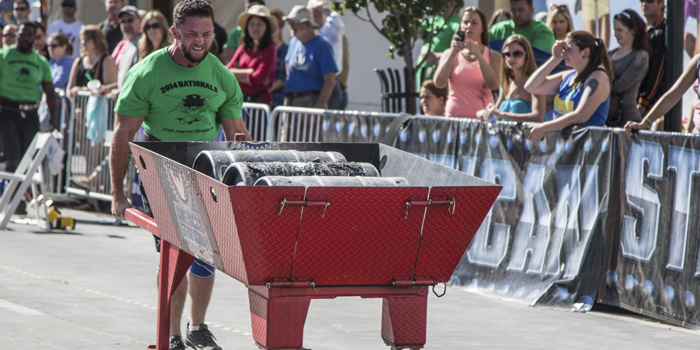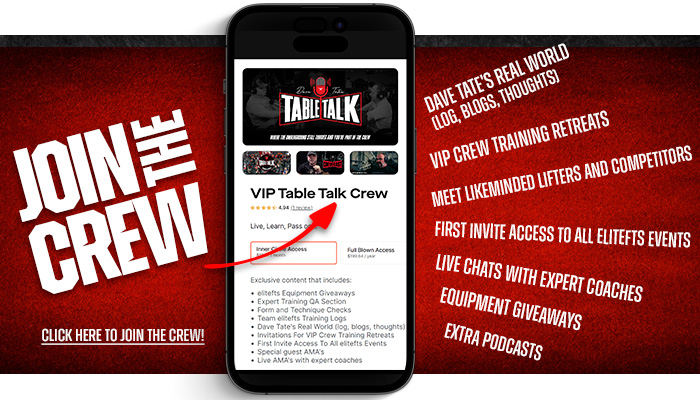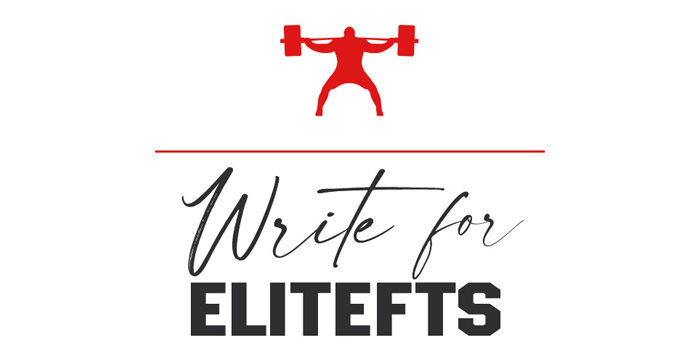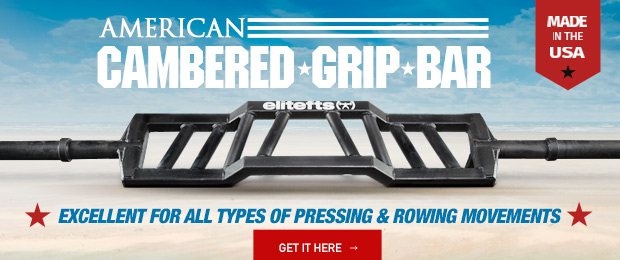
Should you train heavier than what the competition weights are?
It depends.
When to train above contest weight is a question that ALWAYS comes up when training for a strongman competition. Here’s what I think…
Heavy Weight or Competition Weight
There have been times I only touched the competition weight on the day of the competition. However, this is when the weight is extremely heavy, and attempting it during training would be some kind of personal record (PR). When close to a competition, I try to stay away from hitting one rep max PRs, as it can kill your recovery. This is the balance we must play. If you can go slightly over contest weight, how many reps can you get? If it is heavy enough where ten more pounds allows you to get maybe a rep or two, then no, it is not worth it.
It is also important for me to note that I am only talking about training for an event that is for reps. A max event is a whole different story where you want to hit the heaviest weight possible the day of, not in training like so many of you do. When this happens, you are peaking too soon. This all falls into the category of going too heavy during training.
For example, say you are feeling good on a certain day leading up to a powerlifting meet or a max event in strongman. You decide to go off the program, and you hit a new PR. Now, instead of hitting the PR in the competition where it counts, you hit it in training and unfortunately miss it in the competition. I am not saying this will always happen; I am sure there are many cases where someone has hit a PR in training and then another at the competition, but that is not typical.
Recent: Ten Reasons Why You Aren't Making Progress
When to Go Over Competition Weight
Back to training for reps in strongman…
I recommend going over competition weight if your one rep max is 25 percent or more than it. For example, if you have a log press of 200 pounds for reps, you should be able to press at least 250 pounds for reps. This is a big enough margin where you are strong enough to handle heavier loads that will not overly tax your recovery and also give you the confidence in training to go over competition weight. Let’s look at how we can set this up in a training program.
Training Program Sample
The following plan is sticking with the log press and our previous example of a max of 250 pounds and the upcoming competition of 200 pounds for reps starting eight weeks out.
Week 1: 3 x 8 180
Start with a lighter weight, perfect technique, building conditioning.
Week 2: 3 x 6 190
Week 3: 4 x 4 200
Competition weight, but no sets should be close to failure.
Week 4: 10 x 2 30s
Rest 160-speed day/deload
Week 5: 210 2 x 5
Coming off the deload, we now go for over competition weight.
Week 6: 215 2 x 5
Week 7: 200 x max
This session should be early in the week, giving you a week and a half until the comp to allow rest.
Week 8: Competition Week
Rest, and go light on cardio.
This protocol can be used for any event that is done for repetition. Also, if you have an event for distance like the yoke or farmers, you can still use the same setup. Take the percentages I have outlined here and apply them to your moving events. The key is to, of course, get stronger, but being able to go over contest weight is a huge confidence boost. However, if we can not recover from the heavy training, we will not peak properly when it is time to perform.
Matt Mills is a graduate of the University of Connecticut, earning both his bachelor's and master's degrees in Strength and Conditioning. He is also certified through the National Strength and Conditioning Association as a Strength and Conditioning Specialist. As a strength athlete, he is an accomplished powerlifter with a best deadlift of 800 pounds. He is a middleweight pro strongman with best competition lifts of a 360-pound log press, 900-pound pound Hummer tire deadlift, and a 410-pound Farmers Walk. Matt is the owner of Lightning Fitness, located in South Windsor, Connecticut. He has worked with over a thousand athletes, helping them reach their fitness and nutrition goals.











